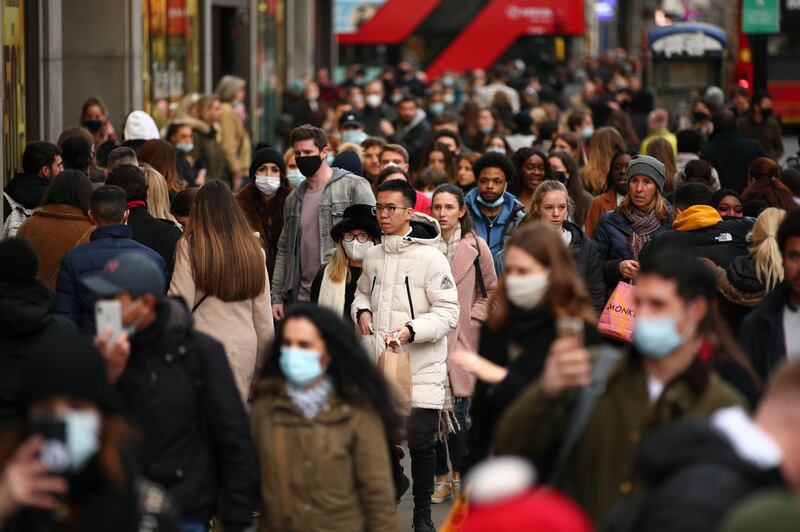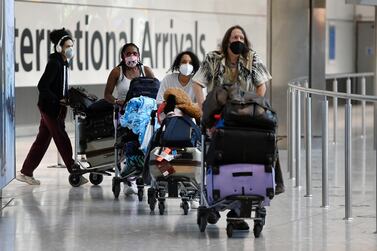The rapid spread of the Delta coronavirus variant first identified in India has driven a 50 per cent rise in infections in England since May, a large study led by Imperial College London found on Thursday.
The government said the data supported Mr Johnson's decision to delay the end of Covid-19 restrictions in England to July 19, given the threat of the Delta variant and the need to vaccinate more people.
The latest round of the React-1 survey, conducted between May 20 and June 7, found prevalence was 0.15 per cent, compared to 0.10 per cent in the last set of data from late April to early May.
"Prevalence is increasing exponentially, driven by younger ages ... and it appears to be doubling every 11 days. Clearly, that is bad news," said Steven Riley, professor of infectious disease dynamics at Imperial College London.
The study is one of the largest prevalence surveys in Britain, with 109,000 volunteers tested in its latest round.
Prof Riley said Britain's high vaccination levels made it hard to predict how long that exponential growth would last, and that the rapid introduction of vaccine doses to younger age groups should slow it down.
More than half of the adult population of Britain have received two vaccine doses, and more than three quarters of adults have received at least one.
Although the Delta variant is shown to substantially reduce the effectiveness of one dose of vaccine against mild infection, two doses still provide good protection against severe disease, early evidence has shown.
"These findings highlight the stark context in which we took the difficult decision to delay Step 4 of the roadmap out of lockdown," health minister Matt Hancock said.
"We all must hold our nerve that little bit longer as our vaccine roll-out continues."








